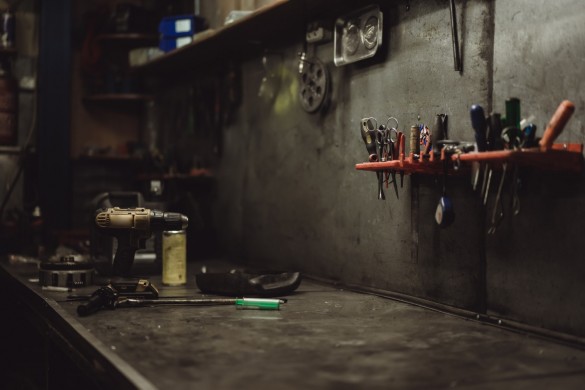CNC Milling in Stone: How Is Technology Changing the Stoneworking Industry?

Do you want to invest in transport equipment but are not sure whether an electric forklift or an internal combustion forklift would be better? Choosing the right type affects work efficiency and company profitability. On the market, there are mainly two types: electric, powered by batteries, and combustion, powered by fuels such as diesel, petrol, or LPG. Each of these forklifts has its advantages and limitations, which is why the decision on whether to choose an electric or combustion forklift should take into account the specifics of the working environment, operational needs, as well as long-term economic and ecological aspects.
In this article:
- Electric forklifts – economical and ecological
- Combustion forklifts – performance and application possibilities
- Electric or combustion forklift? Comparison
- Summary
Electric forklifts – economical and ecological
Electric forklifts are an increasingly popular solution in logistics and production, valued for combining economy and ecology. Their greatest advantage is the lack of exhaust emissions, which makes them safe to use in enclosed halls and warehouses, without the risk of air pollution or negative impact on employees’ health. Additionally, electric forklifts operate much more quietly than combustion forklifts, improving comfort and reducing operator fatigue. Increasingly, these transport devices are cheaper than their combustion versions. Furthermore, cheaper electricity, less frequent repairs, and no need for filter or oil changes mean the investment pays off quickly. When deciding whether to choose an electric or combustion forklift, one must consider the charging infrastructure and work planning that accounts for battery charging times. Forklifts are best suited for indoor environments, where their advantages – clean, quiet, and economical operation – are fully utilized.
Combustion forklifts – performance and application possibilities
Combustion forklifts stand out for their high performance and versatility, especially for outdoor work and tough terrain conditions. DIESEL combustion forklifts or LPG models can work continuously, which is ideal for 24/7 warehouses – a quick refuel is enough to continue tasks without long downtimes. Their lifting capacity of up to 20 tons makes them perfect for transporting heavy loads, and their power and resistance to weather conditions make them reliable on gravel, mud, or ramps. Often LPG and DIESEL combustion forklifts are more expensive than electric versions, and in the long run, operation involves higher fuel costs, more frequent servicing, and the need to replace filters and oil. Emissions must also be considered. Diesel-powered forklifts cannot be used in enclosed warehouses. For such applications, an electric or LPG option should be considered.
Electric or combustion forklift? Comparison
Choosing the right type of forklift is a decision that affects efficiency, costs, and work safety in a company. As a manufacturer of industrial machines, we emphasize that both electric and combustion models have their strengths and limitations. Therefore, the question of whether to choose an electric or combustion forklift in a given case should be analyzed in terms of power supply, technical parameters, and working environment.
Power sources and operating principles
The first criterion that arises when asking which forklift – electric or combustion – will work better is the power supply method. Electric forklifts use batteries, ensuring quiet, emission-free, and smooth operation in halls or warehouses. Combustion forklifts, on the other hand, are powered by diesel, petrol, or LPG, giving them more power and longer work without downtime – a quick refuel is enough to continue tasks.
Main technical and performance parameters
When comparing an electric or combustion forklift in terms of lifting capacity and power, they must be matched to the task specifics. Combustion models can lift up to 20 tons and handle terrain with up to 15% slope. Electric ones, however, excel in environments where maneuverability, precision, and operator comfort matter – they generate less noise, have a smaller turning radius, and produce no emissions.
Summary
The nature of operations and the type of tasks are the most important aspects to consider when deciding whether an electric or combustion forklift is better. More and more companies are opting for fleet electrification, which benefits both the environment and the economy. However, combustion forklifts are still indispensable in tough conditions. Before choosing an electric or combustion forklift, it is worth carefully analyzing your company’s needs and consulting experts. We invite you to explore Cormak’s offer. We have a wide range of modern forklifts perfectly suited for different applications!





